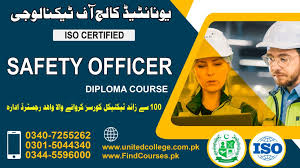 Education
Education
ISO 17025 Training: A Modern Approach to Laboratory Excellence
I. Introduction to ISO 17025 Training
A. Overview of ISO 17025 and Its Purpose
ISO 17025 is an international standard that specifies requirements for the competence of testing and calibration laboratories. It ensures that laboratories produce accurate, reliable results and operate with a robust quality management system. The standard enhances consistency, enabling labs to meet regulatory demands and achieve global recognition.
B. Importance of ISO 17025 Training for Laboratories
ISO 17025 training equips laboratory staff with the knowledge to implement and maintain compliance with the standard. It ensures that processes meet technical and management requirements, improving accuracy, efficiency, and customer confidence. Proper training helps labs achieve accreditation, ensuring global competitiveness and trustworthiness in their results.
C. Who Should Pursue ISO 17025 Training?
ISO 17025 training is ideal for laboratory managers, technicians, quality managers, and auditors. It benefits anyone involved in testing, calibration, and quality assurance. By gaining expertise in ISO 17025, professionals can ensure compliance, improve lab performance, and contribute to achieving and maintaining accreditation.
II. Understanding ISO 17025 Standards
A. Key Components of ISO 17025
ISO 17025 focuses on two main components: technical requirements and management system requirements. Technical requirements cover personnel competence, equipment calibration, and testing methods, while management requirements ensure a robust quality system. Together, these components enable laboratories to consistently deliver reliable and accurate results that meet industry standards.
B. Differences Between ISO 17025:2005 and ISO 17025:2017
The 2017 version introduced a risk-based approach, emphasizing risk management and process efficiency. It also aligns with ISO 9001:2015 and adopts updated terminologies. Additionally, the revised standard simplifies documentation requirements and introduces greater flexibility in defining processes, making it more adaptable to modern laboratory practices.
C. The Role of ISO 17025 in Global Laboratory Standards
ISO 17025 plays a critical role in harmonizing global laboratory practices. It ensures the accuracy and reliability of test and calibration results, fostering trust among stakeholders. Accredited labs meet international standards, facilitating trade, regulatory compliance, and collaboration across borders while enhancing credibility and market competitiveness.
III. Benefits of ISO 17025 Training
A. Enhanced Laboratory Competence and Performance
ISO 17025 training equips laboratories with the skills and knowledge to implement effective quality systems. It enhances the competence of staff, streamlines processes, and ensures adherence to industry best practices. As a result, laboratories improve overall performance, reduce errors, and consistently meet high standards of operation.
B. Improved Accuracy and Reliability of Results
By following ISO 17025 guidelines, laboratories can achieve precise, consistent, and reliable results. The standard emphasizes proper calibration, validated methods, and strict quality controls. This reduces variability, eliminates errors, and ensures that results meet regulatory and customer requirements, building trust in the laboratory’s capabilities.
C. Increased Market Credibility and Customer Confidence
ISO 17025 accreditation demonstrates a laboratory’s commitment to quality and reliability. It enhances market credibility by meeting international standards and regulatory requirements. Customers gain confidence in the lab’s results, knowing they are accurate and trustworthy, which strengthens client relationships and opens new business opportunities globally.
IV. Types of ISO 17025 Training Programs
A. Awareness Training for Beginners
Awareness training introduces ISO 17025 principles, focusing on its purpose, requirements, and benefits. It is ideal for newcomers to laboratory operations, helping them understand quality management systems and technical standards. This foundational training builds a strong understanding of compliance, setting the stage for further specialization in laboratory practices.
B. Internal Auditor Training for ISO 17025
Internal auditor training prepares participants to evaluate a laboratory’s compliance with ISO 17025 standards. It covers auditing techniques, risk assessment, and corrective action implementation. This training empowers professionals to identify non-conformities, ensure continuous improvement, and maintain the laboratory’s adherence to quality and technical requirements.
C. Lead Auditor Training for Advanced Professionals
Lead auditor training provides in-depth knowledge of ISO 17025 standards and advanced auditing skills. Participants learn to lead external audits, manage audit teams, and handle complex scenarios. Ideal for experienced professionals, this training equips them to drive organizational improvements, achieve accreditation, and uphold global quality standards.
V. Core Topics Covered in ISO 17025 Training
A. Understanding Technical Requirements
Technical requirements in ISO 17025 cover key aspects like equipment calibration, personnel competence, and validated testing methods. Understanding these ensures laboratories produce accurate, reliable results. By mastering these requirements, labs can meet international standards, reduce errors, and maintain credibility in testing and calibration processes.
B. Risk-Based Thinking and Decision-Making
ISO 17025 emphasizes risk-based thinking to identify, assess, and mitigate potential issues in laboratory operations. This approach enhances decision-making by focusing on prevention and process optimization. By addressing risks proactively, labs improve efficiency, minimize disruptions, and ensure consistent compliance with quality and technical standards.
C. Developing Effective Quality Management Systems
An effective quality management system (QMS) is vital for ISO 17025 compliance. It involves creating robust procedures, clear documentation, and regular performance evaluations. A well-implemented QMS ensures consistent quality, continuous improvement, and adherence to both technical and managerial aspects of the standard, fostering trust and reliability in laboratory operations.
VI. The ISO 17025 Training Process
A. Selecting the Right Training Program
Choosing the right ISO 17025 training program involves assessing your needs, experience level, and goals. Beginners may benefit from awareness courses, while experienced professionals might pursue internal or lead auditor training. Selecting an accredited, reputable training provider ensures high-quality instruction aligned with industry standards.
B. Training Delivery Methods: Online vs. In-Person
Online training offers flexibility and accessibility, allowing participants to learn at their own pace. In-person training provides hands-on experience and direct interaction with instructors. Both methods have advantages, and the choice depends on personal preferences, schedules, and the need for practical engagement during the learning process.
C. Certification and Post-Training Support
ISO 17025 training often concludes with certification, demonstrating proficiency in the standard’s requirements. Post-training support, such as access to resources, mentorship, or expert consultations, ensures participants can apply their knowledge effectively. This combination helps professionals stay updated and confident in implementing ISO 17025 practices in their roles.
VII. The Future of ISO 17025 Training
A. Integration of Technology in Training Programs
Technology is revolutionizing ISO 17025 training through interactive e-learning platforms, virtual simulations, and AI-driven tools. These innovations offer personalized learning experiences, real-world scenarios, and enhanced engagement. By integrating technology, training programs become more accessible, effective, and aligned with modern laboratory practices.
B. The Growing Demand for Accredited Laboratories
The demand for ISO 17025-accredited laboratories is rising due to stricter regulations, global trade requirements, and increased consumer expectations for reliable testing. Accreditation assures clients of consistent, accurate results. This trend highlights the need for well-trained professionals to maintain quality and compliance in competitive industries.
C. Trends in Laboratory Compliance and Standards
Emerging trends in laboratory compliance include adopting risk-based approaches, enhancing data integrity, and integrating sustainable practices. Standards like ISO 17025 are evolving to address these needs, emphasizing continuous improvement. Staying informed of these trends ensures laboratories remain compliant and competitive in a rapidly changing regulatory landscape.
VIII. Conclusion
A. The Long-Term Impact of ISO 17025 Training
ISO 17025 training has a lasting impact by enhancing a laboratory’s competence, compliance, and reputation. It strengthens operational efficiency and ensures consistent quality, reducing risks of non-conformance. Over time, the knowledge gained fosters a culture of excellence, driving long-term success and market competitiveness for laboratories.
B. Final Thoughts on the Importance of ISO 17025 in Laboratory Success
ISO 17025 is essential for laboratories aiming for accuracy, reliability, and global recognition. It ensures compliance with international standards, builds trust with clients, and opens new business opportunities. Investing in ISO 17025 training is a strategic step toward achieving sustainable success in an increasingly quality-driven market.
C. Encouragement to Take the First Step Toward Training
Embarking on ISO 17025 training is the first step to elevating your laboratory’s standards. Whether you’re new to the field or experienced, training ensures you’re equipped to meet global demands. Take the initiative today to enhance your skills, achieve accreditation, and position your lab for future success.







